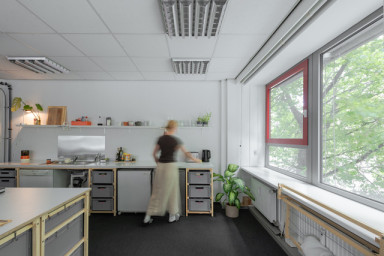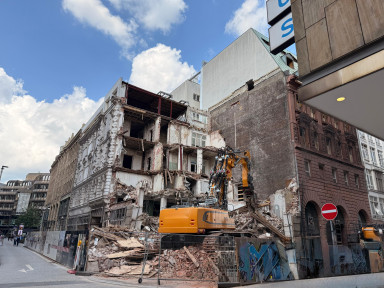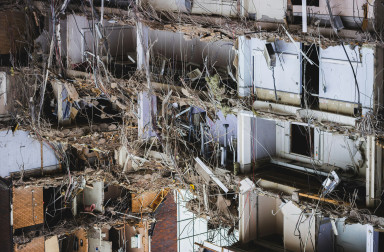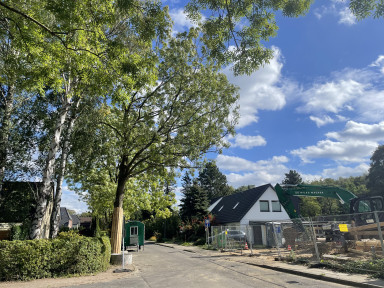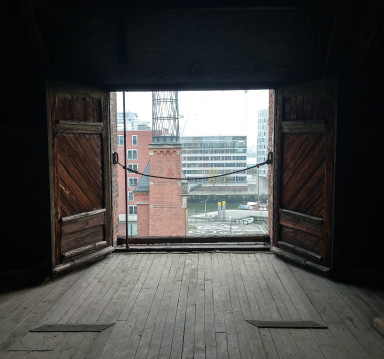The future is already built
Im/possibilities of (material) urban transformation in the face of socio-ecological crises (postdoctoral project)
This research project investigates the potential of repair, renovation, and adaption on an urban scale as sustainable and just alternatives to capitalist urban redevelopment driven by demolition and reconstruction. Grounded in social science, the proposal aims to explore the implications of engaging with existing urban structures. By integrating theoretical perspectives concerned with urban materiality, the financialization of urban development, and current discourses in architecture, this project seeks to bridge disciplinary gaps, contributing to both academic discourse and professional practice.
- urban transformation
- repair
- renovation
- adaption
Context
Contemporary urban development often favours demolition and reconstruction over preservation, renovation, and adaption of existing structures. In the face of current and future socio-ecological crises, however, this practice raises pressing questions about its ecological, social, political, and cultural implications. In response to these challenges, national and international initiatives have emerged across Europe, calling for a fundamental shift in how we engage with the already existing city and advocating for renovation and adaption of existing buildings over demolition (e.g. ‘Abrissmoratorium’ www.abrissmoratorium.de; ‘House Europe!’ https://www.houseeurope.eu).
Aims
Building on these examples and my PhD research, which explored how maintenance and repair can transform infrastructure networks, I aim to examine the possibilities and limitations of urban transformation through preservation, renovation, and adaption. These practices challenge dominant paradigms of innovation and reconstruction, thus offering alternative pathways to reshape both the material world and societal structures. In the context of socio-ecological crises, I argue that engaging with the already existing city is essential for addressing pressing questions about the future. In a way, the future is already built. This proposal seeks to address the (im)possibilities of transformation through renovation, repair, and adaption on an urban scale. While architectural studies have already started to analyse the potential and challenges of engaging with existing building stock,1 there remains a significant gap in social science and humanities perspectives on this topic. A social science analysis is critical to understanding these processes because it
contributes to theoretical frameworks for understanding the interplay between material, social, and economic dimensions of urban transformation
illuminates the ecological, societal, and cultural implications of prioritizing renovation over demolition and
explores governance and policy mechanisms for fostering just and sustainable urban futures.
Due to such analysis, this project is closely linked to the themes and research objectives of the ‘Urban future-making’ research training group, helping to expand on its interests and fostering its visibility not only in the research community but also among built environment professionals. By bridging the gap between reflexive and applied disciplines, this proposal also promotes interdisciplinary collaboration, which is central to the focus of the group.
Research design
This research is situated in a social science perspective while integrating insights from other disciplines, particularly discourses from the comparatively more applied field of architecture. The theoretical foundation will draw upon several key vantage points to investigate the implications and possibilities of engaging with the (material) past in the face of current transformation, such as the material turn in the social sciences,2 as well as maintenance, repair, and care,3 the financialization of the housing market and construction sector,4 and urban aesthetics and cultural imaginaries. This conceptual framework not only addresses the societal value of repair and renovation on an urban scale but also contributes to broader theoretical discussions on materiality, cultural meaning, and the political economy of urban transformation, exploring the possibilities that emerge in the cracks produced by global capitalist processes.
